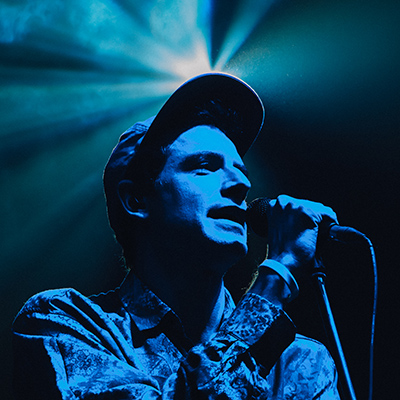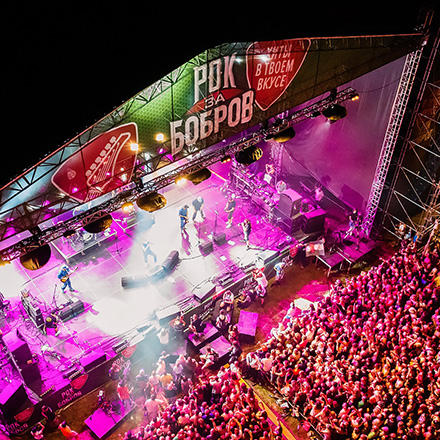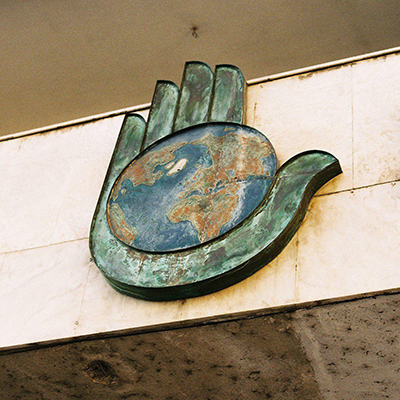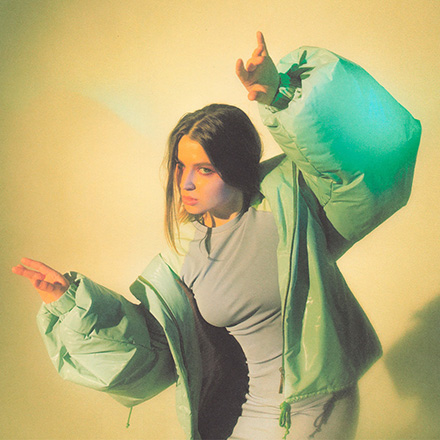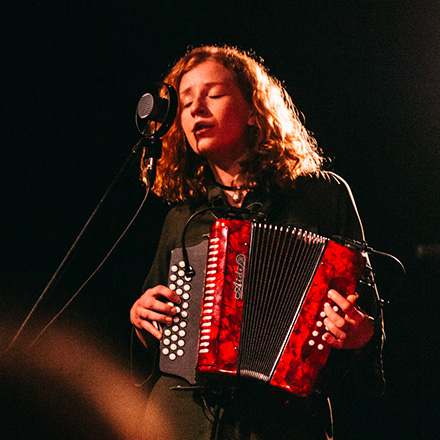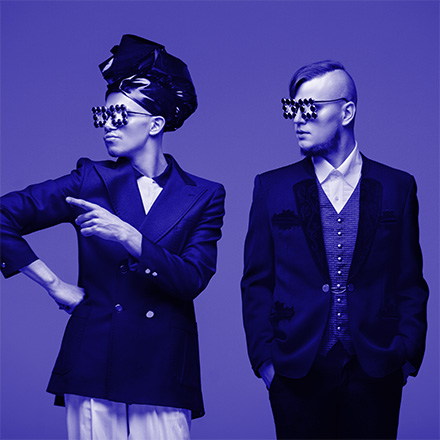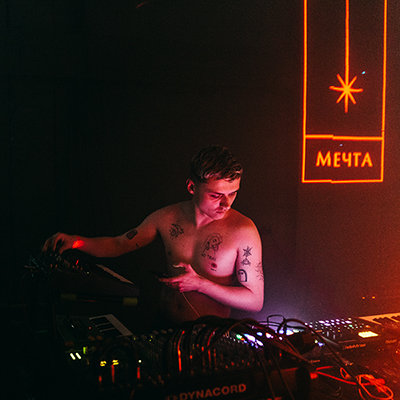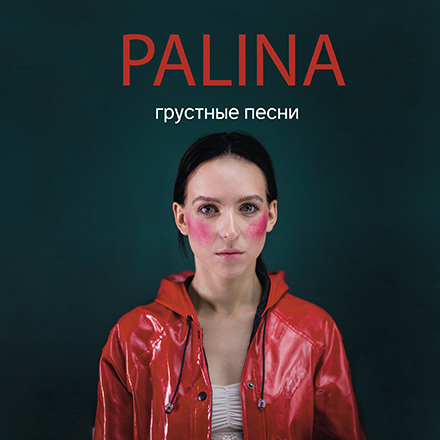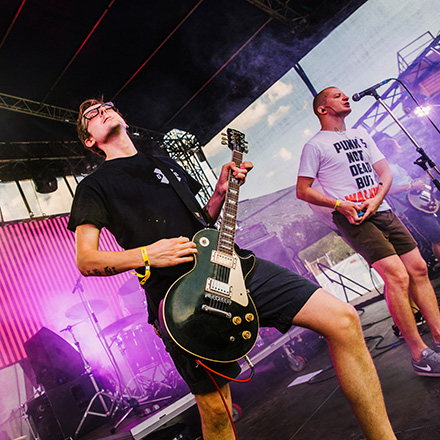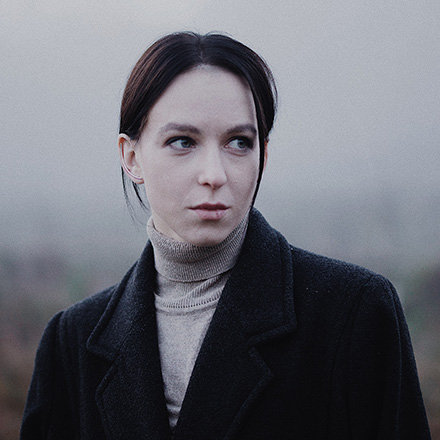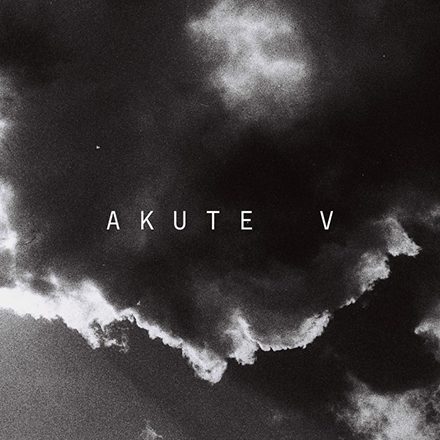«Не трэба больш музыкі»: інтэрв’ю з Марцінам Шутлерам (BY, EN)
- ЧЫТАЦЬ ПА-БЕЛАРУСКУBEL
- READ IN ENGLISHENG
Запрошаны на міжнародны творчы праект Artemp Academy ў Менск, нямецкі кампазітар і перформер Martin Schüttler расказаў Першаку, чаму ён не хоча ствараць больш музыкі, як раздражненне прымушае думаць нестандартна, чаму размовы пра музыку – поўнае глупства і ці можна твітнуць абдымкі.
Марцін Шутлер – кампазітар і перформер, які жыве ў Берліне і Штутгарце. Ён піша музыку для сольных і камерных ансамбляў, хору, аркестра, стварае жывую электроніку і магнітафонную музыку, робіць гукавыя інсталяцыі, медыямастацтва, музыку для тэатра, кіно і танцаў. Творы Марціна выконваліся вядомымі музыкантамі і ансамблямі, такімі як Ensemble Modern, Asamisimasa, Musikfabrik, SWR Vokalensemble, Nadar Ensemble, Ictus і hr-Sinfonieorchester Frankfurt. У 2005 годзе ён заснаваў платформу сучаснай музыкі stock11, а з 2014 года навучае музычнай кампазіцыі ва Універсітэце музыкі і выканальніцкіх мастацтваў у Штутгарце. На працягу Artemp Academy Шутлер курыраваў шэсць маладых кампазітараў і напрыканцы праекта выканаў свае творы «Marion» і «Schöner Leben 3».
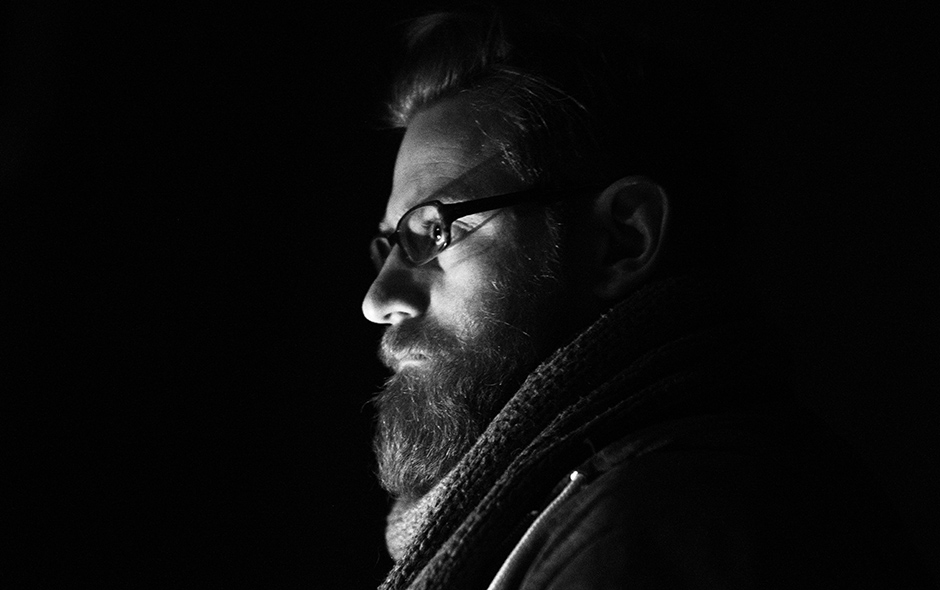
«Немагчыма заўсёды быць арыгінальным, але як творца я не хачу быць брэндам»
Гультай
– У асноўным я граў тое, што прыходзіла мне ў галаву. Насамрэч я ленаваўся практыкаваць увесь час. Ну, я рабіў гэта таксама – граў шмат гістарычнай музыкі, але ў асноўным імправізаваў, за чым пайшло: «Окей, цяпер я павінен гэта запісаць». Гэта адбылося натуральна для мяне – быць кампазітарам, бо вынаходніцтва было па маёй частцы. Але, можа, гэта таму, што я быў надта гультаяваты, каб рэпетаваць: калі гэта мая музыка, я вырашаю, што мне практыкаваць.
Не паўтарацца
– Самае важнае для мяне – не паўтарацца. Вядома, немагчыма заўсёды быць арыгінальным, але як творца я не хачу быць брэндам. Кажучы «паўтарацца», я маю на ўвазе ўвесь час працаваць над аднымі і тымі ж тэмамі, пытаннямі. Кожны новы праект, над якім я працую, павінен мець выклік. Напрыклад, цяпер мяне цікавяць такія пытанні: чым можа быць музыка па-за існуючымі формамі; ці існуе від музычнага мастацтва, які можа сказаць нешта пра наш свет і грамадства толькі пры дапамозе гуку?
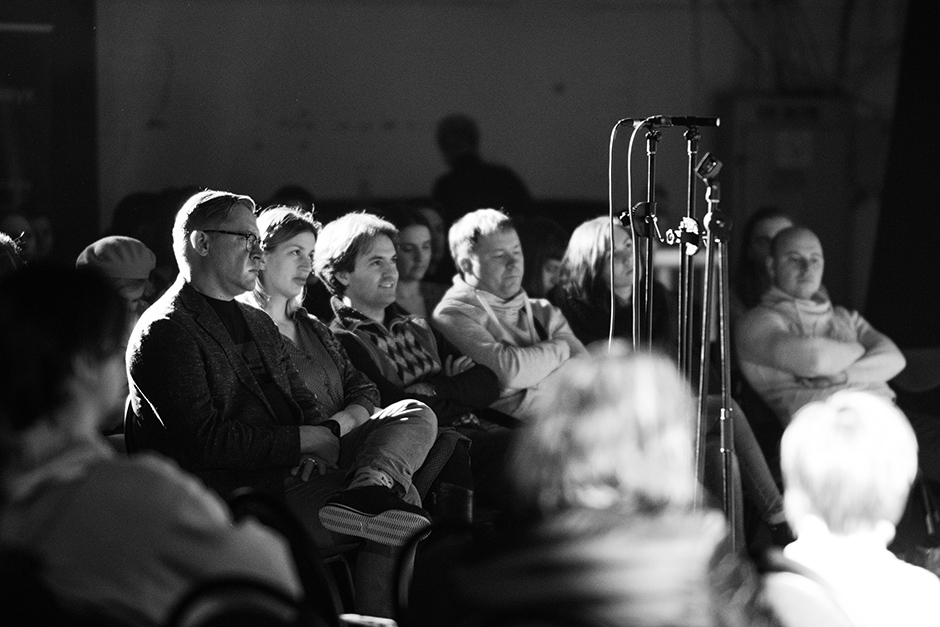
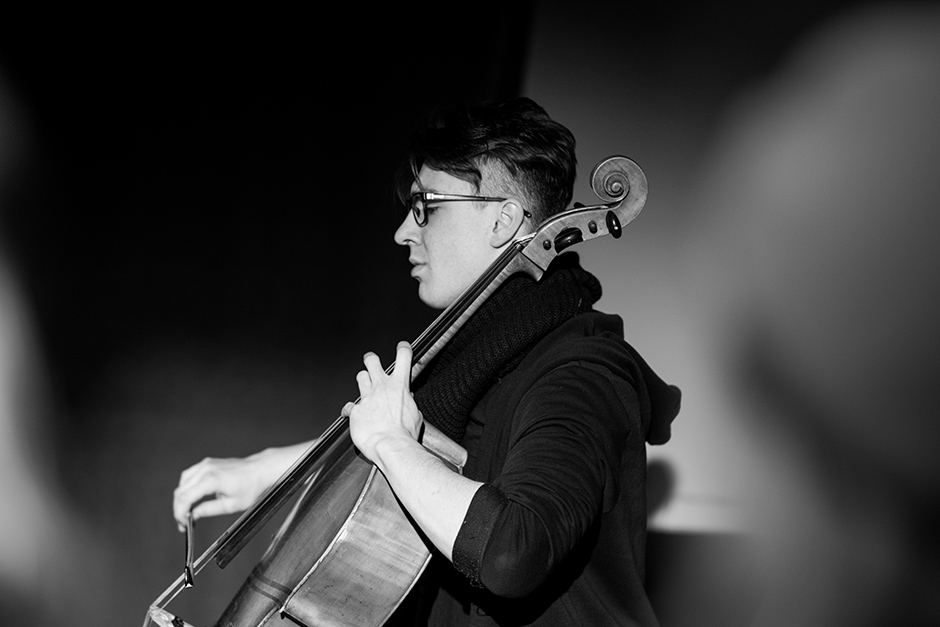
Давайце пагаворым пра музыку
– Ведаеш, людзі любяць размаўляць пра музыку. І, я думаю, яны любяць размаўляць пра яе, таму што гэта немагчыма. Гэта тое, што яны ўвесь час спрабуюць, спрабуюць і спрабуюць рабіць. Тады ты нарэшце кажаш: «Добра, проста паслухай гэта, каб зразумець!» Так, музыка можа расказаць нешта, але гэта іншая разнавіднасць ведаў, у адрозненне, скажам, ад філасофіі. Ты не можаш выразіць яе словамі, быць дакладным і зразумець прамы сэнс, але можаш зразумець нешта паміж мысленнем і пачуццём. Ты слухаеш улюбёную музыку і адчуваеш шмат рэчаў, бо цікавая музыка мае ўласны набор пачуццяў, якія могуць быць справакаваныя ў слухача, яна шматмерная.
Па-за разумением
– Час ад часу я тлумачу свае творы публіцы, але мне не хочацца казаць шмат перад канцэртам. Я заўсёды імкнуся пісаць музыку, якая не патрабуе спецыяльнага бэкграўнду, каб быць зразумелай. Ты можаш не мець музычнай адукацыі, але ў цябе заўсёды ёсць вопыт слухача – значна важнейшы. Ты і так можаш адчуць музыку, але наўрад ці зможаш дакладна выказаць свае пачуцці словам, бо калі ты сутыкаешся з мастацтвам, нешта змяняецца ў табе – нават калі ты гэтага не разумееш.
Я абсалютна ўпэўнены, што твор мастацтва цікавы толькі тады, калі існуюць яго розныя інтэрпрэтацыі. Ты заўсёды можаш сказаць, што «гэта не мой твор мастацтва», «ён мне не даспадобы». Кожны можа мець свой пункт гледжання на твор мастацтва або музыку – але сама музыка не выпадковая. Яна мае кірунак і не дае адназначнага адказу.
«Ты можаш не мець музычнай адукацыі, але ў цябе заўсёды ёсць вопыт слухача – значна важнейшы»
Быць разам
– Перформанс, які я планую на наступны год, такі: удзельнікаў будзе мала, каля 20 чалавек, і да канцэрта яны раскажуць нам пра свае самыя важныя музычныя вопыты. Потым 6 спевакоў – 3 мужчыны і 3 жанчыны – пераасэнсуюць і сінтэзуюць густы публікі ў свае спевы. Сцэны не будзе: спевакі і гледачы будуць змяшаныя, усе блізка адно да аднаго.
Падчас працы над гэтым перформансам я хачу даведацца больш пра чалавека і важнасць музыкі як сацыяльнага вопыту. Гэта як знайсці гук для пэўнай групы людзей у дадзены момант. У мінулым мы мелі толькі адзін спосаб атрымаць музыку – гэта спевы. Недарма людзі маюць музычныя рытуалы, падчас якіх утвараецца ўнікальны від сувязі.
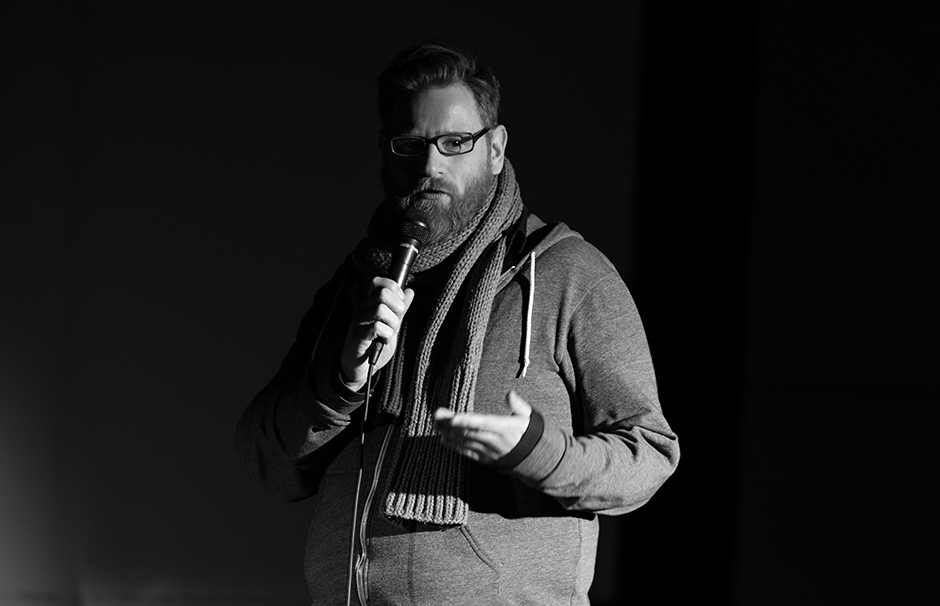
«Я абсалютна ўпэўнены, што твор мастацтва цікавы толькі тады, калі існуюць яго розныя інтэрпрэтацыі»
Ты можаш мець больш прыгожае жыццё
– На мой погляд, у апошнія 2-3 гады праблема фэйкавых навінаў стала вельмі важнай. У мяне такое пачуццё, што сітуацыя становіцца ўсё горш і горш. Асабліва сёння, калі так шмат кантэнту ў інтэрнэце і ты не ведаеш, ці гэта рэальна і хто зрабіў гэтае відэа. Я разважаў на гэты конт у 2009 годзе, калі пісаў «Schöner Leben 3», што азначае «жыць больш прыгожа».
У «Schöner Leben 3» выканаўца грае на флейце ў святле неонавай лямпы, якая ўзмацняецца спецыяльным мікрафонам (для мяне гэта як дадатковая флейта). Я выкарыстоўваю шмат гукаў, падобных да флейты, так што цяжка сказаць, што выканаўца грае і ці грае ён наогул. Гэта падобна да міні-тэатра, дзе ты ні ў чым не ўпэўнены. Калі я пісаў гэтую музыку, адбылася Іранская рэвалюцыя – упершыню інтэрнэт стаў настолькі важным, а праз тры гады адбылася Персідская вясна, калі ўсё канчаткова перайшло ў Twitter. Я быў у шоку, і для мяне гэта стала пытаннем веры. Таму я вырашыў уставіць крыкі арабскіх выступоўцаў з відэа ў Facebook у сваю музыку, якія перабіваюць яе ўвесь час.
Як і маё жыццё, што было перапынена шумам з Twitter і Facebook.
Музыка і жыццё
– На маю думку, сучасная музыка мала звязана з паўсядзённым жыццём. Некаторыя кажуць, што музыка можа сказаць штосьці пра свет, але не наўпрост, неактыўна. Актыўна – значыць думаць пра праблему наўмысна. Канешне, мяне хвалюе, які музычны матэрыял я выкарыстоўваю, але я не зацікаўлены ў гэтым выключна. Рэальнасць і існуючыя праблемы з’яўляюцца маёй галоўнай матывацыяй і структурнымі ідэямі будучай музыкі. Я асабіста не зацікаўлены ў музыцы, зацыкленай толькі на сабе. Мяне цікавіць музыка як від мастацтва, якую нараджае паўсядзённы вопыт і якая можа патрапіць у канкрэтныя дыскусіі.
Занадта шмат музыкі
– Ёсць выраз, які я час ад часу паўтараю: кампазітар павінен каментаваць сучасныя рэаліі. Сёння ў нас тэрабайты розных гукаў у інтэрнэце, якія можна слухаць і пампаваць. У мяне няма адчування, што я павінен дадаць яшчэ больш музыкі да таго, што ўжо ёсць. Магчыма, візуальным мастакам таксама не хочацца ствараць больш фотаздымкаў. На мой погляд, сёння кампазітар павінен не ствараць больш музыкі, а хутчэй даваць арыентацыю ва ўжо існуючым гуку.
Доступ
– У Нямеччыне існуе вялікая група людзей, якая слухае авангардную музыку. Гэта, безумоўна, не самая папулярная музыка ў свеце, і ніколі ёй не будзе, але тое ж самае адбываецца з усім сучасным мастацтвам. Тут няма мас, і гэта абсалютна нармальна. Вядома, кожны раз я спадзяюся, што будзе больш людзей на канцэрце, але, магчыма, не так важна, каб усе хадзілі на такія падзеі. Больш важным для мяне з'яўляецца наяўнасць доступу да такога мастацтва, і калі ты вырашыў не ісці – гэта абсалютна нармальна. Калі ты любіш футбол і піва – выдатна, гэта тваё жыццё. Але калі ты не ведаеш пра існаванне такога мастацтва, не ведаеш пра магчымасць убачыць нешта падобнае – тады гэта становіцца праблемай.
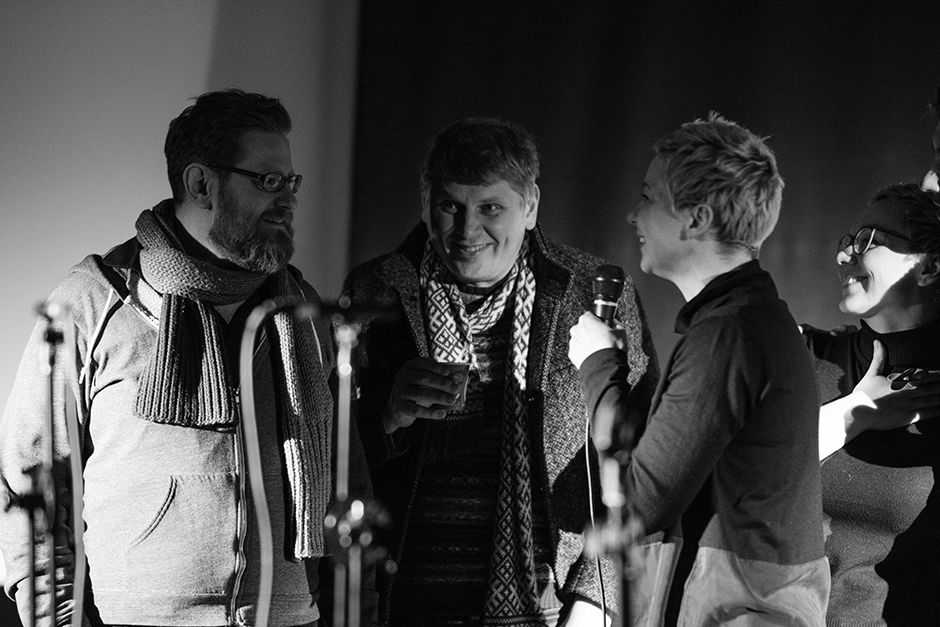
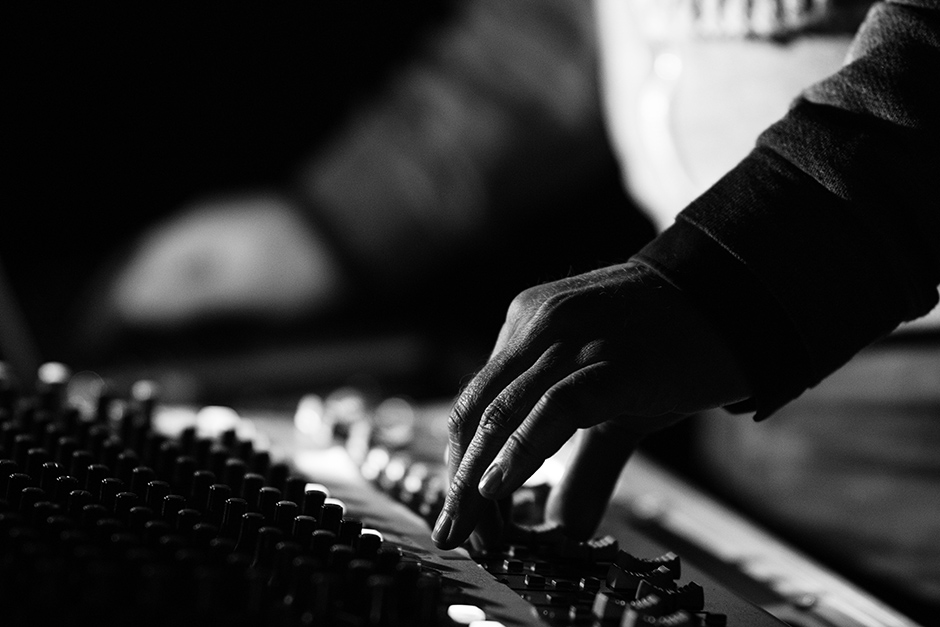
«На жаль, многія людзі не лічаць раздражненне нечым станоўчым. Але гэта адна з лепшых рэчаў, што могуць здарыцца ў мастацтве»
Ода раздражненню
– На жаль, многія людзі не лічаць раздражненне нечым станоўчым. Але гэта адна з лепшых рэчаў, што могуць здарыцца ў мастацтве. Гэта выклік. Трэба нешта, каб выцягнуць цябе з твайго цёплага гаўна. Я ведаю, што гэта жорстка, правакацыйна, але мы бачым нешта іншае, што можа быць таксама верагодным. Я рады ведаць, што існуе музыка, якую я пішу раз-пораз, і што некаторыя людзі, слухаючы яе ўпершыню, раздражняюцца чымсьці, «што можна назваць музыкай». Гэта так адрозніваецца ад таго, што яны лічаць нармальным! Тады яны ўпершыню пачынаюць усведамляць абмежаванасць сваіх поглядаў.
Напрыклад, іспанскі нойз-музыка Mattin робіць зверскі шум нават на 1-1,5 гадзіны. Ён укладае велізарны палітычны кантэкст у свой шум і лічыць, што ён з'яўляецца адзіным спосабам пазбегнуць камерцыі ў музыцы, таму што гэта настолькі немеладычна.
Artemp Academy
– Мы сустрэліся з Марыяй у Штутгарце, дзе яна выконвала мой твор. Яна запрасіла мяне далучыцца да Artemp Academy, і гэта было абсалютна фантастычна. З ідэяй кожнага з шасці маладых кампазітараў я працаваў вельмі ўважліва, закранаючы ўсе магчымыя ўзроўні. Выдатна, што напрыканцы яны дэманстравалі свае новыя творы, над якімі працавалі на працягу тыдня. Выклікам тут стала адкрыццё новых дзвярэй, бачанне іншых спосабаў.
Калі ласка, не трэба помнікаў
– Я адчуў розніцу паміж еўрапейскімі і ўсходнімі кампазітарамі. Развіццё сучаснай музыкі за апошнія 50 гадоў (часам нават больш), што адбылося ў Злучаных Штатах і Заходняй Еўропе, невядомае тут. Калі ты хочаш быць творцам, ты павінен ведаць, што адбываецца ў свеце, што існуе, ты павінен мець да гэтага дачыненне ў той ці іншай форме. Творца павінен ведаць, што ён робіць, каб не трапляць у становішча, нібыта ён сляпы альбо глухі, нібыта ён ніколі не чуў пра гэта. Можна пабудаваць помнік, але гэта будзе без якога-небудзь эфекту – ён проста будзе стаяць, асобна ад грамадства і пытанняў сучаснасці.
«Мастак павінен ведаць, што ён робіць, каб не трапляць у становішча, нібыта ён сляпы альбо глухі, нібыта ён ніколі не чуў пра гэта»
Інтэрактыўная музыка
– Мастацтва становіцца ўсё больш і больш гнуткім, інтэрактыўным, перфарматыўным, мае рознае ўзаемадзеянне з аўдыторыяй – яно больш не статычнае. Гэта традыцыі 18-га стагоддзя, калі для арыстакратаў выступалі на сцэне музыкі. Але гэта не тып грамадства, у якім мы жывем цяпер, і я быў бы вельмі рады, каб больш людзей зразумела, што час змяніўся і нам патрэбныя розныя падыходы. Мы пастаянна ўзаемадзейнічаем анлайн, удзельнічаем, каментуем, але на канцэрце мы павінны проста сядзець і слухаць. Цяпер гэта не працуе. Надышоў час адлюстраваць рэчы, якія магчымыя і больш дарэчныя сёння.
Фота – Андрэй Калеснікаў і Кацярына Нікановіч
Being invited to Artemp Academy in Minsk, German composer and performer Martin Schüttler shares with us the reason he doesn’t want to make more music, how irritation provokes thinking outside the box, why talking about music is a total nonsense and if you can actually twitter a hug.
Martin Schüttler is a composer and performer who currently lives in Berlin and Stuttgart. His work includes pieces for solo and chamber music ensembles, choir, orchestra and live electronics, as well as the production of tape music, sound installations, media art, theater, film and dance music. Martin’s music has been performed by famous musicians and ensembles, such as Ensemble Modern, Asamisimasa, Musikfabrik, SWR Vokalensemble, Nadar Ensemble, Ictus, and the hr-Sinfonieorchester Frankfurt. In 2005 he co-founded the platform for contemporary music stock11 and has been teaching music composition at the University of Music and Performing Arts in Stuttgart since 2014. During Artemp Academy he curated six young composers and in the end presented his pieces “Marion” and “Schöner leben 3”.

“You can't always be original, but as an artist I don't want to be a brand”
Background
– I am not from that talentive childhoods. I have an ordinary background, my family had nothing to do with music and was not very wealthy. Learning flute recorder at primary school didn't affect me much, and when I was 8-9 y.o. I had an idea to learn the piano. My parents told me to forget about it because we couldn’t afford to buy the instrument. But then something unexpected happened. My older cousin, who played the piano, didn’t want to play it anymore. So, by a wonderful coincidence, we had a spare piano in our family! From that moment, I spent up to 6 hours at the instrument. In my hometown Kassel we also have the international art fair documenta which impressed me a lot as a kid. I was also lucky to meet a talentеd piano teacher who was also a very good composer. He noticed that I was willing to go further with music composing and helped me on my way.
Lazybones
– I mostly played what was coming to my head. I was pretty lazy when it came to actually practicing. Well, I did that too – played a lot of historical music – but most of the time I was improvising. That was followed by “ok, now I should write it down”. So it came naturally for me to be a composer – I'm more into this inventing. Maybe it’s because I was so lazy to rehearse: when the music is mine, it’s up to me what to practice.
Being original
– The most important part of me is that I don't want to repeat myself. Of course, you can't always be original, but as an artist, I don't want to be a brand. By saying “repeating” I mean constantly working on the same topics, issues. Every new piece or project I'm working on should have some challenge for me. I’m currently interested in the following questions: What could music be besides what everybody considers it to be? What kind of music can you think of besides existing forms? Is there a kind of musical art that can say something about our world and society we live in with just sound?


Let's talk about music
– You know, people like to talk about music. And I think they love to talk about it because it's not possible to talk about it. It's something they are constantly trying, trying and trying. You’re trying to come close, you’re trying to come close. Then you say “ok, just listen to it to get to the point!” Yes, music can answer some questions, but it’s a different kind of knowledge about society and the world than, let's say, philosophy. You can't bring it down to words, be precise or understand the direct meaning. I'm very convinced that sound can tell you something on the level of pre-language – it’s not a language yet, it doesn't work with terms, but you can understand something between thinking and feeling. Musical feelings themselves are very complex: you listen to the music you love and you feel lots of things. That’s why interesting music has its own set of feelings which can be provoked in a listener, it's multi-dimensional.
Gateways
– I'm always trying to write music that doesn’t require any particular background to understand it. You might not have a musical education but you always have a listening background, which is much more important. Musical surroundings you were raised in have a bigger influence on you than your education. I want to build gateways to understanding music by using musical material from different backgrounds. But it doesn't mean that my music sounds exactly like what you can expect.
“You might not have musical education but you always have a listening background, which is much more important”t
Beyond understanding
– Once in a while, I do explain my pieces to the public, but I don't like to talk too much before the concert. You can already feel what the music is about but you don’t necessarily have to express it verbally because when you are confronted by such things something changes in you – even if you don't realize it. I'm absolutely sure that a piece of art is only interesting in case there are different interpretations of it by different people. You can always say something like “it's not my piece of art, I don’t like it”. Everybody will have a different perspective on a piece of art or a piece of music – but it's not random. It has a direction it points to, but not ONE simple answer.

“I'm absolutely sure that a piece of art is only interesting in case there are different interpretations of it by different people”
Being together
– I'm thinking about a new piece for the next year with such a setup: the audience in the concert will be very small, like 20 people, and before the concert they will tell us about their most important musical experiences. And then 6 singers – 3 male and 3 female ones – will synthesize and reinterpret the tastes of the audience. There will be no stage: singers and audience will be mixed, everybody will be close to each other in a small room.
While working on this project, I expect to learn more about the Human Being and how music is important as an experience of getting together. In the past, there was only one way for people to have music in their life, and that was singing. It's like finding a sound for a specific group of people at this specific moment. People have rituals of doing music together with a very unique kind of connection.
You can have a more beautiful life
– I guess in the last 2-3 years the question of fake news has become really important. I have this feeling that it's getting harder and harder. Especially today when you have so much content online and you don't know what is real, who made this video. I thought about this topic in 2009, when I wrote "schoener leben 3" which means “living more beautifully”.
In this specific piece, which is number 3 out of a series of 9 pieces from 2009, I was interested in the concept of fake: what's real and what is not, what is made up and what is authentic, what to believe in and not to believe in.
There is a performer playing the flute with a neon light above, amplified with a special microphone (for me it's like another flute). There are many sounds like flute and I used fake flute-like imitations, so it's hard to say if the performer is actually playing. It’s like a mini theater where you are not sure about anything. When I wrote this piece, the Iranian Revolution happened. For me, it was the first time when the internet got so important, and 3 years later it was followed by the Persian Spring when everything for the first time went on Twitter. I was shocked, and for me it was a question of faith. So I decided to put the shouts of people in the video from Facebook into my piece so that they were interrupting it all the time. Like my life was interrupted by Twitter and Facebook noise.
Music vs.daily life
– I think that contemporary music has a lack of connection to daily life, it just deals with musical problems. Some say that music can tell about the world, but not directly, not actively: “I just take care of the music and hopefully it will say something about the world”. ‘Actively’ means thinking about it on purpose. I also have these questions, like, what kind of musical material do I use, but I'm not interested in this alone. It works differently for me. I usually think about the real world and its problems, taking them as a motivation and structural ideas for music I'm going to write. I'm personally not interested in music that is just self-referred but music that as a form of art can say something about the world and therefore become a point of specific discussions is more appealing to me. My music is coming from the day-to-day experience.
Too much music
– I have a favorite line that I repeat from time to time: a composer should comment on the world surroundings. Today we have millions of sounds and music online, you can listen and download everything. I don't have the feeling that I have to add some more to it. Maybe visual artists also have the feeling that they don’t have to produce more pictures. I see that composing now doesn't mean producing more music but rather providing orientation in the existing sound.
Access
– There is quite a large group of people listening to avant-garde music in Germany. It's definitely not the most popular music in the world, and it will never be. I think it's the same with all contemporary art: we don't have masses getting into it and it's absolutely OK. Of course, I am hoping each time that there will be more people at the concert, but maybe it's not so important for everybody to attend such events. What is more important to me is that everybody has access to it, and if you decide not to go – it's up to you. If you are interested in football and drinking beer – fine, it's your life. But if you don't know about the existence of such art, about the opportunity to see something like that – then it’s a problem.


“Unfortunately many people don't see irritation as something positive. But it is one of the best things that can happen in art”
Ode to irritation
– Unfortunately, many people don't see irritation as something positive. But it is one of the best things that can happen in art. It's a challenge. You need something that brings you out of your warm shit. I know it's brutal, it's confronting, but it shows something else that could also be possible.
I'm happy to know that the kind of music I'm writing once in a while exists, that some people while listening to it for the first time get irritated by the fact that “something like that could be called music”. This is so different from what they expect to be normal! They start to think outside the box and maybe this is the only moment they understand that they are actually inside the box.
For example, Spanish artist Mattin makes brutal harsh noise for 1-1.5 hours as loud as possible coming from loudspeakers.
There is a huge political agenda of that. Mattin sees Noise as the only way of avoiding commercialism in music because it's not melodic at all.
Artemp Academy
– I met Maria in Stuttgart where she performed a piece of mine. She invited me to take part in Artemp School and that was fantastic. What I really liked about that setting was that 6 young composers I worked with premiered their new pieces developed throughout the week. We were working very precisely on the ideas they came up with, touching all the levels possible. However, I saw a big challenge here to open some new doors, see some other ways.
No monuments, please
– The development of the contemporary music over the last 50 years (sometimes even more) that happened in the US and Western Europe is not well-known here. But if you want to be an artist you should know what is happening, what is going on, what exists, and you have to deal with it, in one way or another. As an artist, you should know what you are doing and not fall into the position of being blind or deaf, like you've never heard about something. In this sense, you can build a monument but it would be without any effect – it just stays separated from the society and the questions of the present time.
“As an artist, you should know what you are doing and not fall into the position of being blind or deaf, like you've never heard about something”
Interactive music
– For me it's very important that art is getting more and more flexible, interactive, participative, encouraging engagement with the audience. It's not so static anymore. It was a tradition of the 18th century when aristocrats had some musicians playing for them, but it's not the society we live in now. I would be glad if more people would realize that the times have changed and we need different approaches. We are constantly interacting online but at a concert we should just sit and listen. I think we should reflect a lot more on things that are possible today and would be more appropriate for the present age.
Photos by Andrej Kalesnikaŭ and Kaciaryna Nikanovič
